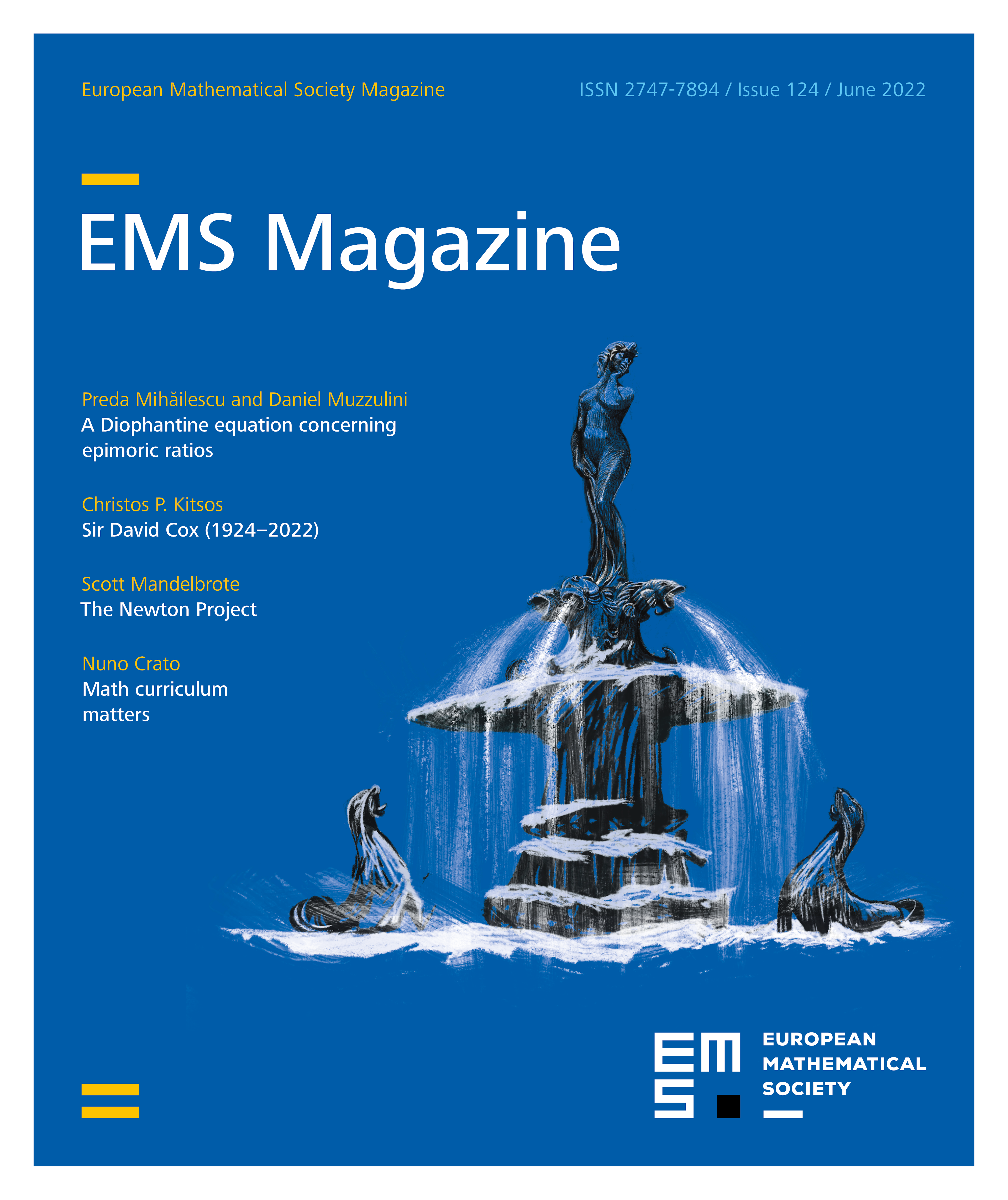ICMI AMOR – A collective long-term project with short-term opportunities
All rights reserved.
In 2017, the International Commission on Mathematical Instruction (ICMI) launched the project ICMI AMOR (ICMI Awardees Multimedia Online Resources) (www.mathunion.org/icmi/awards/amor). The project was initiated by Jean-Luc Dorier and, since then, it aims at building online resources reflecting highly significant and influential research in mathematics education at an international level. The R in AMOR particularly stands for independent units consisting of a series of video modules, with each unit devoted to one mathematics education researcher who was honored with the Felix Klein Award or the Hans Freudenthal Award (www.mathunion.org/icmi/awards/icmi-awards). The Emma Castelnuovo awardees are in the process of being also integrated in the project.
A question at the core of AMOR development is how we narrate the history and present of our research field, or at least of substantial parts of it. Too often, the history of a field is little known to its present participants. Handbooks and compendia volumes are examples of classical resources with an important role in offering representations of knowledge gained in our field, as well as bases for its present and future activity. Yet we cannot expect that one type of resources on its own meets the challenges of communicating the past and present of mathematics education research. Moreover, written communication of advances in the field does not always emphasize the lived experiences and processes of collaboration that made these advances possible. The AMOR units with video modules around contributions made by leading researchers in mathematics education relate their histories of scholarship to the histories behind the pieces of knowledge gained.
The units of Michèle Artigue, Guy Brousseau, Yves Chevallard, Celia Hoyles and Anna Sfard, in different stages of development from finalized to initiated, are currently available on the AMOR website. The unit of Celia Hoyles (Hans Freudenthal Award 2003) is the most recent, now consisting of the introductory Module O presented by Núria Planas, followed by three modules presented by Celia Hoyles and grouped into “Mathematics education in the digital age: Promise and reality”: “Setting the scene” (Module 1); “Putting into practice: A curriculum innovation approach” (Module 2); and “Putting into practice: Programming and computational thinking” (Module 3). Alongside work on started units, the AMOR team within the ICMI Executive Committee works on the preparation of newer units. In deciding who to work with, we consider the award year, but also the time availability of the awardees or of close collaborators.
It would be unfair not to give a brief overview of the other units. Anna Sfard’s unit has just seen unveiled three more modules on mathematical objects and routines, which are constitutive elements of her influential commognitive approach to mathematics education. Michèle Artigue’s unit with nine modules and Module O presented by Jean-Luc Dorier is as much finished as it can be a unit of a researcher who continues to be strongly active after so many decades of incredible work. Jean-Luc Dorier also introduces Guy Brousseau’s unit, which together with the six modules presented by Claire Margolinas and Annie Bessot show the impact size of the theory of didactical situations in mathematics. Last but not least, we find Yves Chevallard’s unit, with all modules presented by Marianna Bosch, except the introduction (by Jean-Luc Dorier) for communication of how and how much the anthropological theory of the didactic has moved the research field forward. With the involvement of awardees and colleagues, ICMI AMOR keeps going and growing.
Now it is important to use the potentialities of the resources provided by AMOR as much as possible, and as much as needed. In any institution with a PhD and/or Master courses in mathematics education, we could for example draw on these materials to complement the learning experience of the young researchers or newcomers to the field who are in the process of understanding the complexities of doing mathematics education research. The learning opportunities that the use of AMOR can create are not however limited to young researchers; watching the modules can be equally inspiring for mature researchers in the field and for those in the field of mathematics, too. The scientific specificity of the mathematics education research field is wonderfully illustrated through the creative voices of expertise and dedication. Moreover, in a lighter way, some parts of the units can be used in some contexts of mathematics teachers’ training.
At present, the available AMOR units are a result of invitations and acceptances, and does not necessarily provide broad or strategically intended representations of the research field. We are interested in expanding the project in the direction of broader representations of mathematics education research with awardees from different world regions, and possibly within more diverse theoretical traditions. As it is now, nonetheless, the number of accounts is large enough to be considered a reliable representation of the quality and progress of mathematics education research over the last decades. We thus very much welcome you to visit the ICMI AMOR website and experience the different units. You can send your comments (bad or good) to Jean-Luc Dorier at icmi.secretary.general@mathunion.org.
Cite this article
Núria Planas, ICMI column. Eur. Math. Soc. Mag. 124 (2022), pp. 57–58
DOI 10.4171/MAG/85
